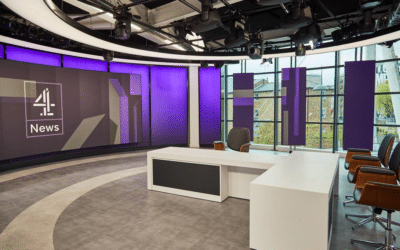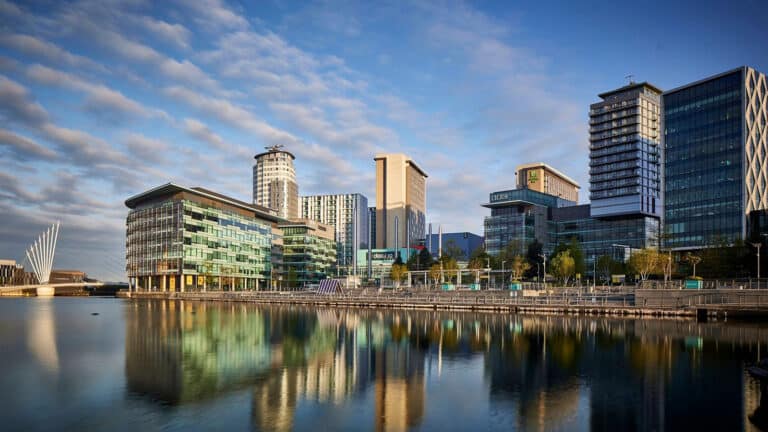One the one hand a “major blow” to investigative news, on the other a “big vote of confidence” in MediaCity’s BBC Breakfast.
BBC’s announcement yesterday has been given a very mixed reaction.
Let’s start with the positive news, at least for Salford and MediaCity. The BBC will be airing a national news bulletin from outside of London for the first time. Plus it’s extending BBC Breakfast by 15 minutes and employing a new UK Editor, in Salford.
For those who remember back to 2010 and comments about how BBC Breakfast would never work outside of London – “you’d never get the Prime Minister on the sofa in Salford” it’s a major turnaround.
Particularly given that Channel 4 also now has a permanent Northern newsroom in Leeds.
“This is a big vote of confidence for BBC Breakfast and shows how that programme has become stronger and more distinctive over the last decade, since moving to Salford,” said Dr Richard Jones, Director of Journalism, Politics and Contemporary History at the University of Salford.
“At the time critics said it would struggle being based outside London but the opposite has been true. I think the BBC now represents the UK better than it once did and a lot of that is down to having so many programmes coming from Salford.”
However, the changes to BBC News and Current Affairs, also includes a major reformat of Newsnight and, according to the NUJ, the closure of 127 posts.
Newsnight will become a 30 minute interview, debate and discussion show, and move away from filmed investigations. Meaning around half of its dedicated team of 57 will go
“In an era when many of the ‘talking heads’ who are a regular feature of TV news are all over social media all day, it’s not clear how having a discussion format will help Newsnight recover other than making it a lot cheaper to make,” said Dr Richard Jones.
The BBC said it would create new financial and political roles within its Investigations Unit and add to its BBC Verify team.
In total it planned to create around 147 roles, which were focused on digital-first delivery of news.
“While we welcome investment in digital, we have grave concerns that the axe is falling disproportionately on investigatory news output,” said Paul Siegert, NUJ broadcasting organiser.
“Flagship programmes such as Newsnight and Panorama have a long history of setting the news agenda with in-depth investigations and exclusive stories. The proposals would, on the face of it, diminish a part of the BBC’s output that has already been negatively impacted by previous rounds of cuts. The extension of BBC Breakfast and News at One would not provide an equivalent in-depth analytical and agenda-setting news product.”
For full details and comment from the BBC, read the breaking story here.














